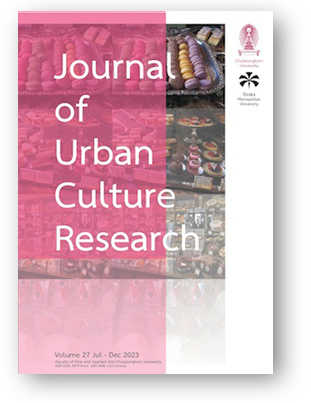Collaborative Place-making: Some Theoretical Perspectives on Sense of Place as a Motivation for Participation
DOI:
https://doi.org/10.14456/jucr.2023.25Keywords:
Collaborative Planning; Motivations; Place-making; Urban Planning Theories; Sense of PlaceAbstract
Collaborative planning is emerging as a novel approach to stakeholder participation, to create new values and products within urban planning. However, the motivations behind participating in the planning process have been limitedly addressed. Fainstein, Healey, Forester, and many planning theorists argue the necessity of public participation in urban development. Nevertheless, project-affected people may consider it a time-wasting, disinteresting and frustrating process. Therefore, the identification of significant motivation for community participation is important. This paper argues that sense of place is a significant motivator of community participation in collaborative place-making. These arguments draw upon planning theories, intrinsic and extrinsic motivations and efficacy theories. This research enables researchers to perceive the benefits of sense of place in the urban planning process, offering valuable insights for urban designers, planners, and policymakers seeking to foster community participation in the realms of place-making and environmental management.
Downloads
Published
How to Cite
Issue
Section
License

This work is licensed under a Creative Commons Attribution-NonCommercial-NoDerivatives 4.0 International License.
Authors authorize the JUCR to publish their materials both in print and online while retaining their full individual copyright. The copyright of JUCR volumes is retained by Chulalongkorn University.
The views and opinions expressed herein are those of the individual author(s) and do not necessarily reflect the policies or opinions of the Journal (JUCR), it editors and staff, Chulalongkorn University, or Osaka Metropolitan University.








